AI in Customer Service Hidden Benefits You Should Know
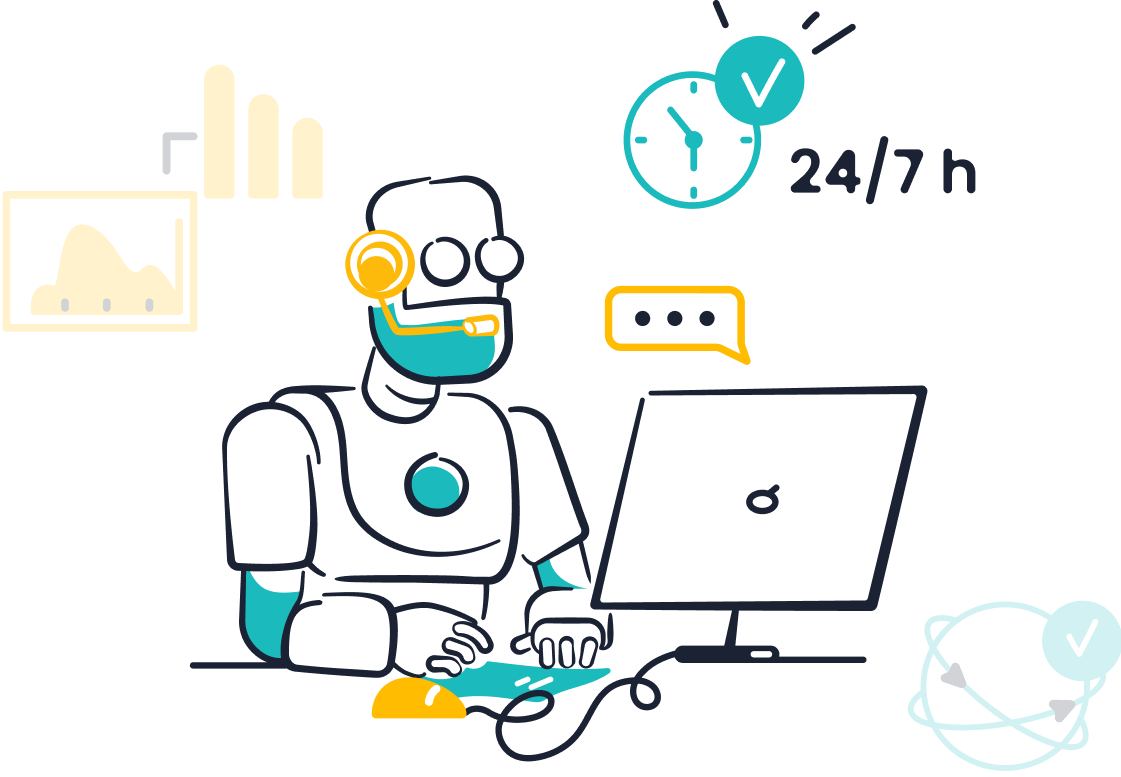
AI is reshaping customer service, offering solutions that go beyond surface-level improvements. Businesses now use AI to deliver faster and more accurate support, creating meaningful customer experiences. For instance, companies using AI report a 37% reduction in first response times and resolve tickets 52% faster. These advancements not only improve service efficiency but also enhance satisfaction. Moreover, AI reduces human error and automates repetitive tasks, allowing service agents to focus on complex issues. Tools like Sobot’s AI chatbot showcase how AI can revolutionize customer interactions while uncovering the hidden benefits of AI in customer service, such as cost savings and personalized service.
Understanding AI in Customer Service
What is AI in customer service?
AI in customer service refers to the use of artificial intelligence technologies to improve how businesses interact with their customers. It automates repetitive tasks, provides instant responses, and personalizes interactions. For example, AI-powered chatbots like Sobot’s Chatbot can handle common queries 24/7, ensuring customers receive timely support.
The adoption of AI in customer service is growing rapidly. By 2025, 65% of businesses are expected to expand their use of AI in customer support. This trend is driven by the need for faster resolutions and better customer experiences. Additionally, conversational AI is projected to reduce contact center costs by $80 billion by 2026. These advancements show how AI is transforming the way businesses deliver service.
Key features of AI in customer support
AI offers several features that enhance customer support. These include:
- 24/7 Availability: AI tools provide round-the-clock support, reducing wait times and increasing satisfaction.
- Personalized Recommendations: AI analyzes customer data to suggest products or services tailored to individual needs.

- Multilingual Support: Tools like Sobot’s Chatbot can communicate in multiple languages, making it easier to serve global customers.
- Trend Analysis: AI identifies patterns in customer interactions, helping businesses improve their service strategies.
- Workflow Optimization: AI automates repetitive tasks, allowing agents to focus on complex issues.
For instance, companies using AI have reported up to a 60% reduction in response times and a 20% increase in customer satisfaction. These features not only improve efficiency but also create meaningful customer experiences.
Why AI is essential for modern customer service
AI is no longer optional; it’s essential for businesses aiming to stay competitive. It enables faster responses, reduces operational costs, and enhances customer satisfaction. The AI customer service market, valued at $308 million in 2022, is expected to grow to nearly $3 billion by 2032. This growth highlights the increasing reliance on AI to meet customer expectations.
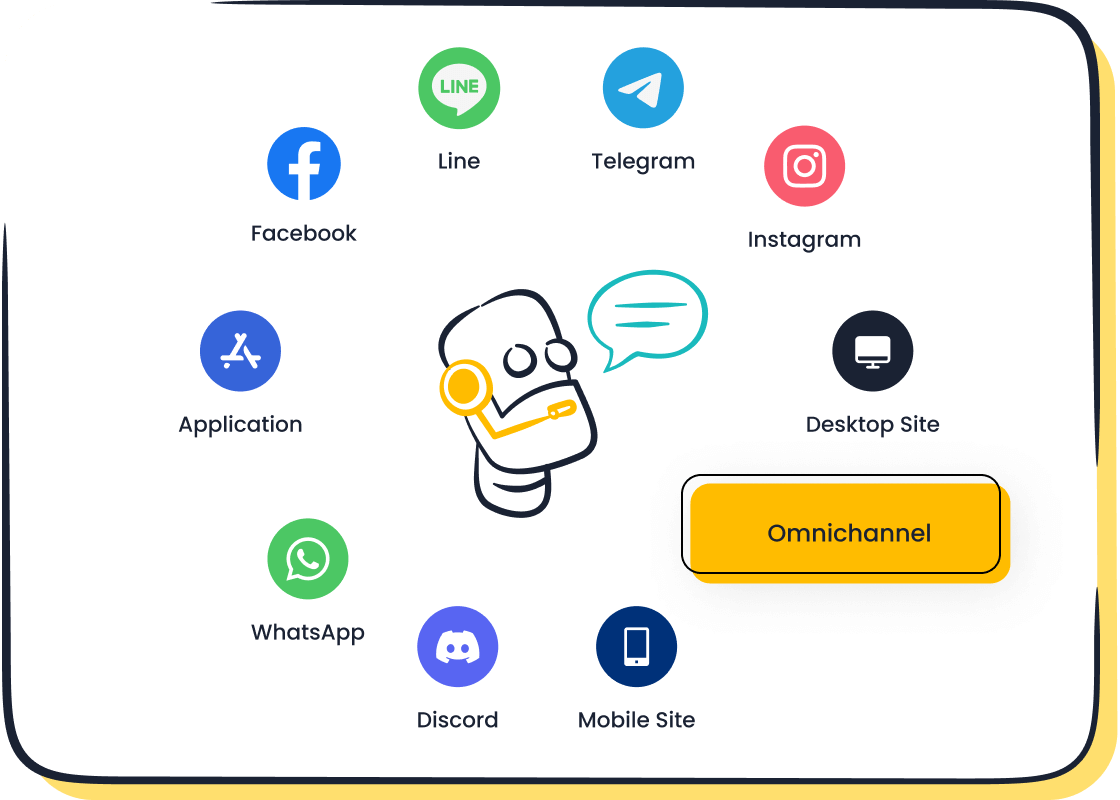
AI also empowers businesses to handle high volumes of inquiries across multiple channels. For example, Sobot’s Omnichannel Solution integrates AI to unify customer interactions, ensuring consistent service. With AI, you can provide proactive support, anticipate customer needs, and make data-driven decisions to improve your operations.
Tip: Investing in AI tools like Sobot’s Chatbot can help you deliver exceptional service while reducing costs.
Hidden Benefits of AI in Customer Service
Personalization at scale with AI
AI enables businesses to deliver personalized interactions to every customer, regardless of scale. By analyzing customer sentiment analysis and historical data, AI tools can recommend products or services tailored to individual preferences. For example, Sobot’s AI chatbots use advanced algorithms to provide a personalized experience by understanding customer intent and offering relevant solutions instantly. This level of personalization not only enhances customer satisfaction but also builds loyalty.
AI-driven customer service tools excel at creating meaningful connections. They can identify patterns in customer behavior, allowing you to anticipate needs and offer proactive solutions. Imagine a chatbot suggesting a product upgrade based on a customer’s previous purchases. This approach transforms routine interactions into opportunities for engagement, ensuring every customer feels valued.
Cost efficiency through AI-powered automation
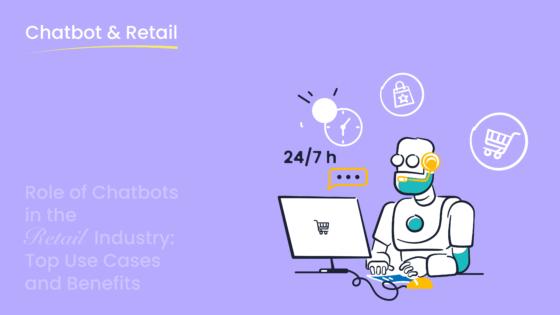
AI-powered automation is a game-changer for cost efficiency in customer service. By automating repetitive tasks, AI reduces the need for extensive human intervention. For instance, Sobot’s AI chatbots operate 24/7, handling common queries and freeing up agents to focus on complex issues. This reduces labor costs significantly while maintaining high service standards.
Businesses that adopt AI automation report impressive results:
- Labor costs for certain tasks drop by over 50%.
- Manual processes, like invoice handling, are completed in seconds instead of minutes.
- Companies see a 60% reduction in errors when using AI for data management.
These benefits translate into substantial savings and improved operational efficiency. With tools like Sobot’s omnichannel solution, you can optimize workflows and allocate resources more effectively, ensuring your team delivers exceptional service without overspending.
Multilingual support for global customer bases

AI breaks language barriers, enabling you to serve a global audience seamlessly. Multilingual AI chatbots, like those offered by Sobot, can communicate in multiple languages, ensuring every customer receives support in their preferred language. This capability is crucial for businesses with diverse customer bases.
Companies using AI for multilingual support report a 20% increase in efficiency. Effective tools, such as interactive voice response (IVR) systems, enhance communication by up to 30%. Additionally, businesses with multilingual capabilities see a 30% boost in customer retention rates. By integrating AI into your customer service strategy, you can provide consistent, high-quality support worldwide, enhancing both satisfaction and loyalty.
Tip: Sobot’s AI chatbots offer multilingual support and operate round-the-clock, making them an ideal choice for businesses aiming to expand globally.
Proactive service enabled by AI insights.
AI empowers businesses to deliver proactive customer service by predicting customer needs and addressing issues before they arise. This approach transforms customer interactions from reactive to proactive, enhancing satisfaction and loyalty. For instance, AI tools analyze customer behavior and identify patterns, enabling you to anticipate potential problems. Imagine a chatbot notifying a customer about a delayed shipment before they even inquire. This proactive communication builds trust and reduces frustration.
Many companies have successfully implemented proactive strategies using AI insights:
- Slack uses microsurveys and open-ended questions to gather feedback, allowing them to resolve issues proactively and tailor their support.
- Facebook leverages its extensive knowledge base to help users find answers independently, reducing the need for direct assistance.
- RTS Labs collaborated with a retail brand to integrate AI, resulting in personalized interactions that boosted both satisfaction and sales.
Sobot’s AI-powered solutions, such as its chatbot and omnichannel platform, enable you to provide proactive service effortlessly. These tools analyze customer data in real time, offering insights that help you address concerns before they escalate. By adopting AI, you can create a seamless and proactive customer experience that sets your business apart.
Data-driven decision-making for continuous improvement.
AI equips businesses with the ability to make data-driven decisions, ensuring continuous improvement in customer service. By analyzing vast amounts of data, AI tools generate actionable insights that help you optimize performance and refine strategies. For example, predictive analytics can forecast customer trends, enabling you to adapt your services to meet evolving needs.
Organizations that embrace data-driven decision-making see remarkable results:
- A utility company used advanced analytics to detect meter theft and improve diagnostics, reducing costs and enhancing reliability.
- A software company implemented self-service chatbots, managing 40% of common queries and improving customer satisfaction.
- A global online retailer leveraged customer data to create personalized shopping experiences, increasing engagement and retention.
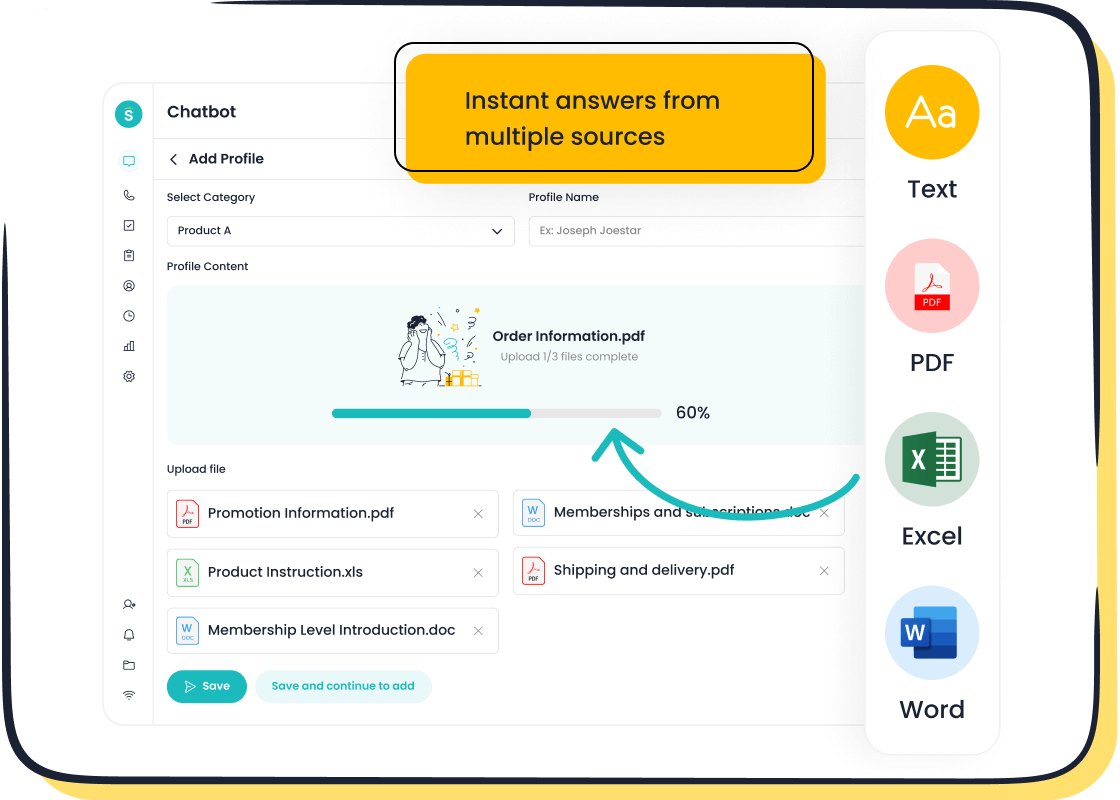
Sobot’s solutions, like its omnichannel platform, provide robust analytics to help you monitor performance and identify areas for improvement. These insights enable you to streamline workflows, enhance agent efficiency, and deliver exceptional service. By integrating AI into your operations, you can stay ahead of the competition and achieve sustainable growth.
Tip: Use AI tools like Sobot’s chatbot to harness the power of data and drive continuous improvement in your customer service strategy.
Real-World Applications of AI in Customer Service
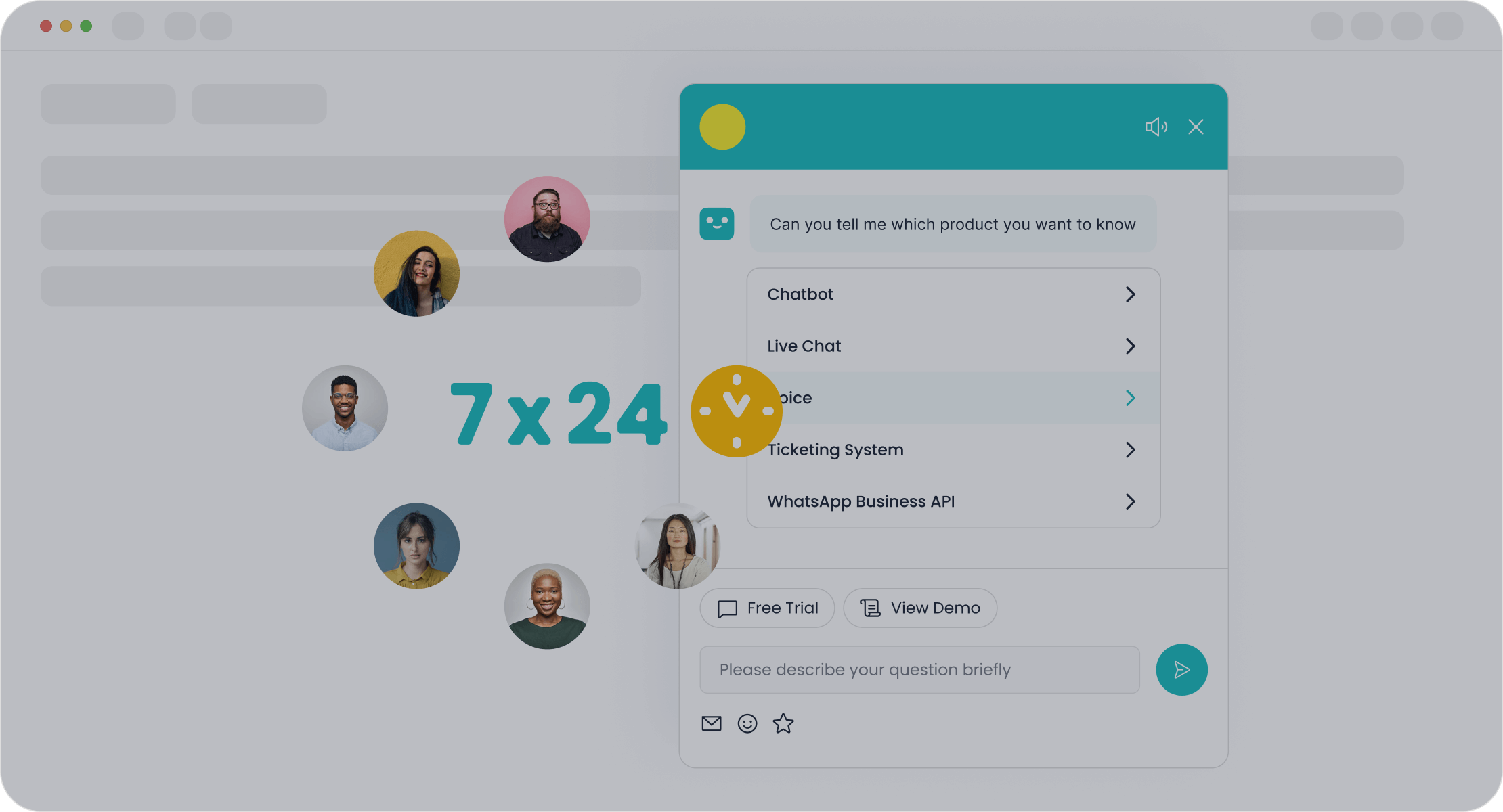
How Sobot's Chatbot enhances customer interactions
Sobot's AI-powered chatbots redefine customer service by delivering efficiency and satisfaction. These chatbots handle repetitive queries autonomously, allowing your agents to focus on complex issues. They operate 24/7, ensuring customers receive instant support at any time. With multilingual capabilities, Sobot's chatbots cater to global audiences, breaking language barriers effortlessly.
The measurable outcomes of Sobot's Chatbot highlight its impact:
| Outcome | Measurement |
|---|---|
| Operational Efficiency | 6X increase |
| Cost Reduction | 25% overall reduction |
| Customer Satisfaction (CSAT) | 95% |
These results demonstrate how Sobot's Chatbot enhances customer interactions while optimizing operational efficiency. By integrating this tool, you can provide seamless and personalized service, boosting customer loyalty and satisfaction.
Case study: OPPO's success with Sobot's AI solutions
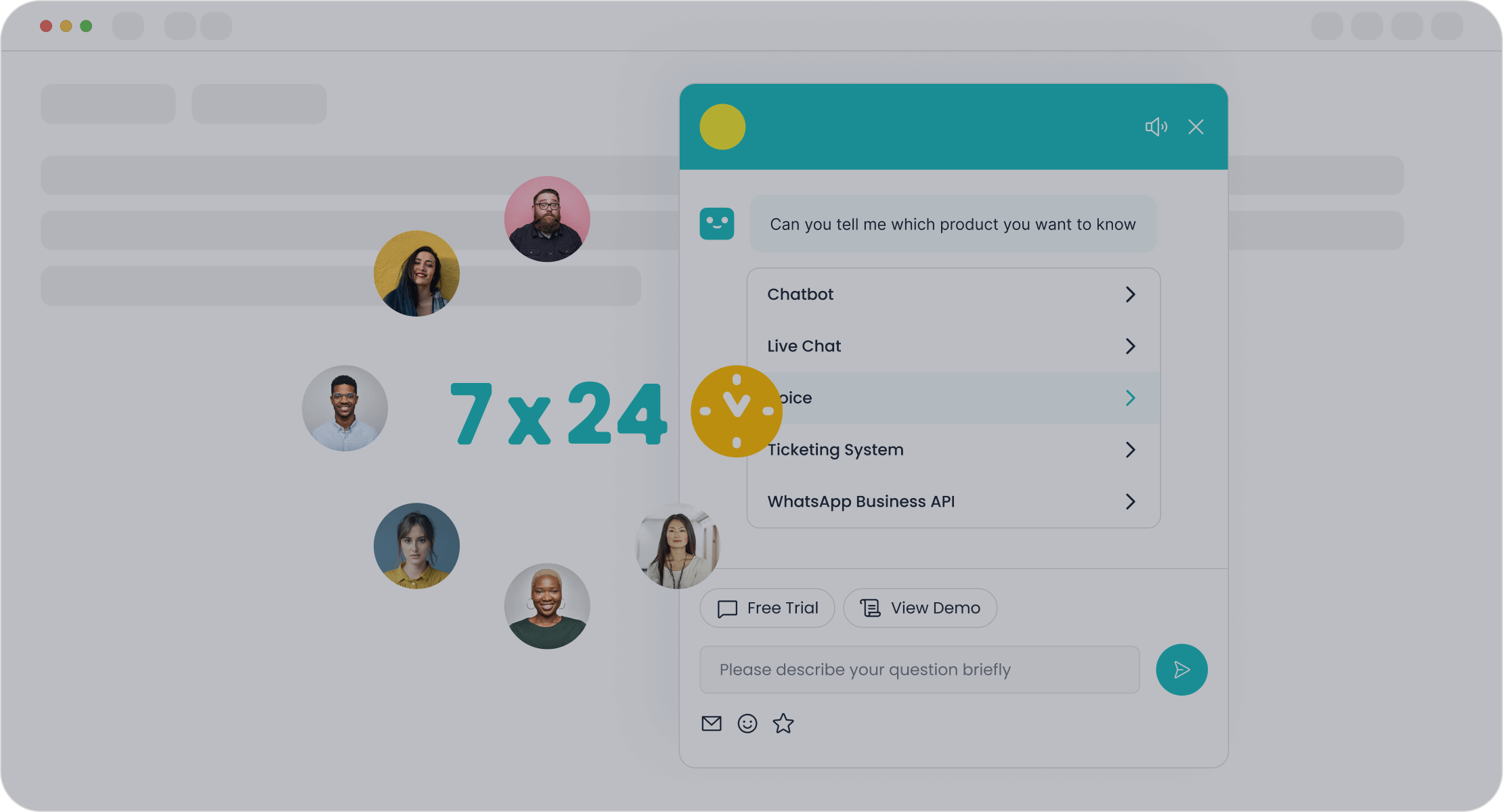
OPPO, a global leader in smart devices, faced challenges during peak shopping periods. High inquiry volumes overwhelmed their agents, leading to delays and dissatisfaction. By implementing Sobot's AI solutions, including chatbots and a ticketing system, OPPO transformed its customer service operations.
The chatbot resolved 83% of inquiries, allowing agents to focus on complex cases. Additionally, Sobot's AI optimized OPPO's knowledge base, reducing maintenance efforts by 90%. These improvements led to a 94% positive feedback rate and a 57% increase in repurchase rates. OPPO's success showcases the transformative potential of AI in customer service.
Examples of AI-driven customer service in various industries
AI is revolutionizing customer service across industries. In retail, AI-powered chatbots provide personalized shopping recommendations, increasing sales by 25%. In healthcare, AI tools streamline patient inquiries, improving satisfaction by 69%. Telecommunications companies use AI to enhance customer experience, with 49% prioritizing this use case.
| Industry | Percentage Prioritizing Customer Experience |
|---|---|
| Retail and CPG | 79% |
| Communications | 68% |
| Healthcare | 69% |
| Telecommunications (CX use-case) | 49% |
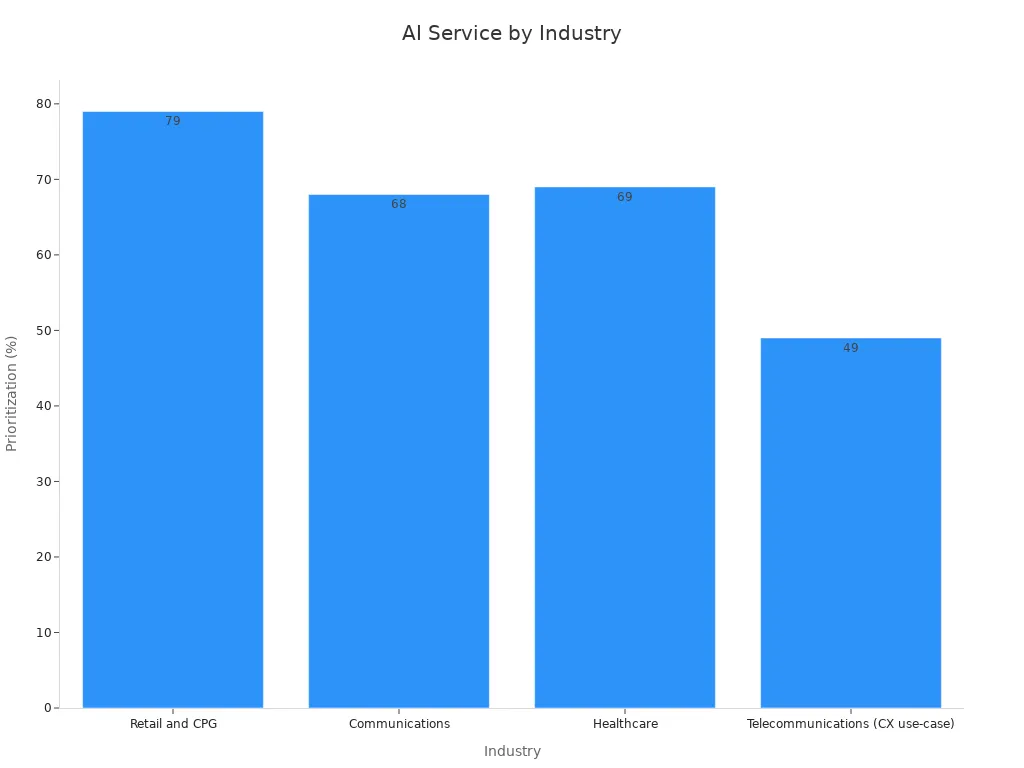
These examples highlight the main applications of AI in customer service, from improving efficiency to enhancing customer satisfaction. By adopting AI, you can stay ahead in a competitive market and deliver exceptional service.
Overcoming Challenges in AI Implementation
Addressing resistance to AI adoption
Resistance to AI adoption often stems from fear of job displacement and mistrust in AI systems. Research highlights that "uniqueness neglect" plays a significant role in this resistance. Customers may feel that AI lacks the human touch, leading to hesitancy in accepting AI-driven customer service. Adjusting interaction methods, such as improving chatbot responses and ensuring transparency, can help reduce this resistance.
To overcome these challenges, you can focus on educating your team and customers about AI's benefits. For example, Sobot’s AI chatbot enhances efficiency by handling repetitive queries, allowing agents to focus on complex tasks. This collaboration demonstrates how AI complements human efforts rather than replacing them. By fostering trust and showing the value of AI, you can encourage its adoption across your organization.
Ensuring ethical and responsible use of AI
Ethical AI use is critical for maintaining customer trust and avoiding reputational risks. According to a survey by IDC & Credo AI, 31.4% of respondents worry about data privacy, while 27.6% fear poor customer experiences due to irresponsible AI use. These concerns highlight the importance of implementing responsible AI strategies.
You can address these issues by ensuring transparency in AI decision-making and adhering to data protection regulations. For instance, Sobot’s omnichannel solution integrates secure systems to protect customer data while optimizing customer service. Additionally, monitoring AI for bias and providing customers with control over their data can further enhance trust. Ethical AI practices not only improve customer satisfaction but also safeguard your business from regulatory challenges.
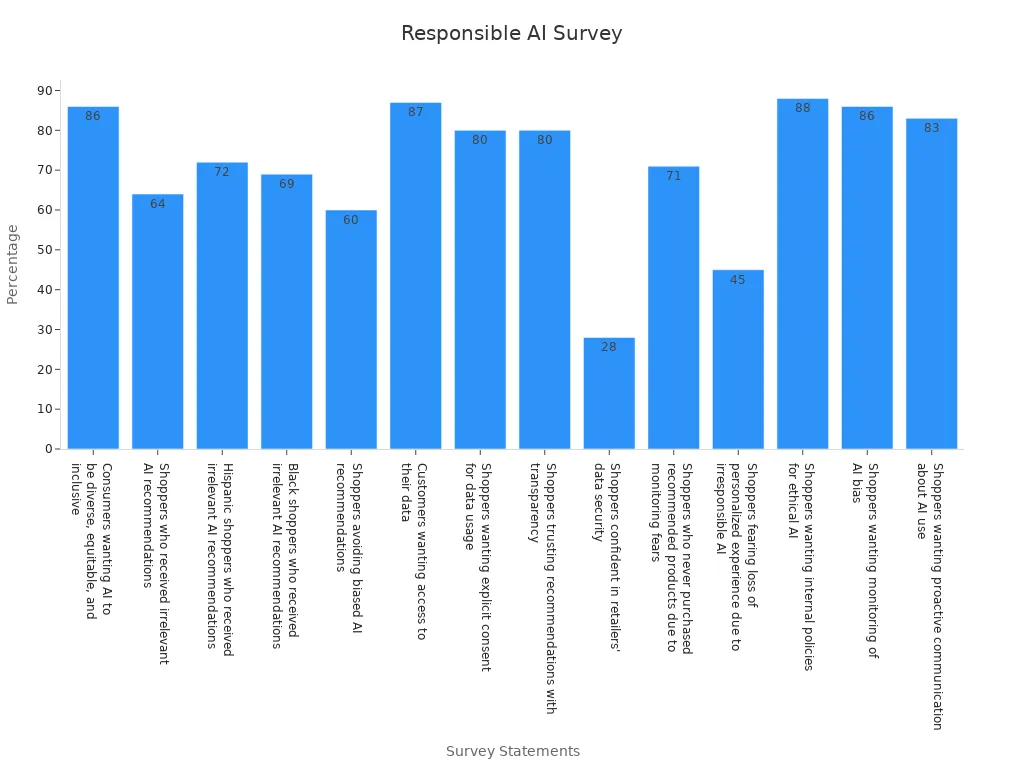
Strategies for seamless AI integration
Integrating AI into your customer service operations requires careful planning. Start by assessing your current systems to identify gaps where AI can add value. For example, Sobot’s AI tools, such as its chatbot, can automate repetitive tasks like ticket sorting, improving efficiency. Choosing the right AI tools that align with your business goals is equally important.
Training your team is another crucial step. Educate your staff on how to use AI tools effectively to maximize their benefits. Finally, monitor AI performance regularly and make adjustments as needed. Continuous evaluation ensures that your AI systems remain efficient and aligned with your objectives. By following these strategies, you can integrate AI seamlessly and unlock its full potential.
| Strategy | Description |
|---|---|
| Assess Your Current Systems | Evaluate existing technology to identify how AI can add value. |
| Choose the Right AI Tools | Select tools that align with business goals and integrate smoothly with current systems. |
| Train Your Team | Provide training to staff to maximize the benefits of new AI tools. |
| Monitor and Adjust | Continuously review AI performance and make necessary adjustments for efficiency. |
Tip: Sobot’s AI-powered solutions offer easy integration and robust analytics, making them ideal for optimizing customer service.
Practical Steps to Integrate AI in Customer Service

Assessing business needs and goals
Before integrating AI into the customer service sector, you need to evaluate your business needs and goals. Start by aligning your processes and policies with AI initiatives. This ensures that your organization is ready for the transition. Ethical and regulatory compliance is another critical factor. Review your adherence to data privacy standards to maintain customer trust. Assess cultural readiness to gauge how open your team is to adopting AI.
A strategic foundation is essential for customer experience optimization. Conduct a value chain analysis to identify areas where AI can enhance operations. Create an implementation roadmap that focuses on low-risk, high-value initiatives. Evaluate your AI maturity by assessing data management capabilities, technology infrastructure, and skill availability. These steps help you build a solid foundation for AI integration.
Choosing the right AI tools like Sobot's Chatbot
Selecting the right AI tools is crucial for success. Tools like Sobot's Chatbot offer advanced features that optimize customer service. For example, Sobot's Chatbot provides multilingual support, operates 24/7, and requires no coding for setup. These features make it ideal for businesses aiming to improve efficiency and reduce costs.
Use performance metrics to guide your decision. Metrics such as customer satisfaction scores, retention rates, and goal completion rates help you evaluate the effectiveness of AI tools. For instance, Sobot's Chatbot achieves a customer satisfaction score of over 95%, demonstrating its ability to deliver exceptional service. By analyzing these metrics, you can choose tools that align with your business objectives and enhance customer interactions.
| Metric | Description |
|---|---|
| Customer Satisfaction Score | Over 95% of customers reported satisfaction, indicating effective service delivery. |
| Retention Rate | Indicates how many users return, reflecting the chatbot's usefulness. |
| Goal Completion Rate | Assesses whether the chatbot meets its intended objectives, crucial for evaluating effectiveness. |
Training teams and monitoring AI performance
Training your team is vital for successful AI integration. Provide comprehensive programs that focus on both technical skills and customer interaction strategies. This ensures your staff can use AI tools effectively. For example, training agents to collaborate with virtual assistants like Sobot's Chatbot improves productivity and customer satisfaction.
Monitoring AI performance is equally important. Establish metrics to measure response times, resolution rates, and customer satisfaction scores. Use these indicators to track improvements and identify areas for optimization. For instance, businesses implementing AI report a 30% drop in operational costs while enhancing service quality. Regular analysis of metrics like ROI and user retention rates ensures continuous improvement and maximizes the benefits of AI.
| Indicator | Description |
|---|---|
| Customer satisfaction | Tracks improvements in customer experience post-AI implementation. |
| Employee productivity | Measures output increase per employee after AI implementation. |
| ROI | Assesses the return on AI investment, helping evaluate its effectiveness in generating revenue. |
Tip: Sobot’s AI-powered solutions simplify monitoring with robust analytics, helping you refine your customer service strategy.
AI in customer service offers transformative benefits that go beyond efficiency. It enables personalization at scale, reduces costs, supports multilingual interactions, and provides proactive service. These advantages empower businesses to deliver exceptional customer experiences while driving growth. For example, companies using AI report a 47% increase in average order value and a 15% boost in conversion rates. Operating costs also drop by over 20%, making AI a cost-effective solution.
| Statistic Description | Value |
|---|---|
| Growth in Average Order Value (AOV) | 47% |
| Increase in Conversion Rates | 15% |
| Reduction in Operating Costs | More than 20% |
By adopting tools like Sobot’s Chatbot, you can harness these benefits to stay competitive. Its 24/7 availability, multilingual support, and data-driven insights make it an ideal choice for modern service needs. AI is not just a tool; it’s a pathway to sustainable success.
FAQ
What is the impact of AI in customer service?
AI transforms customer service by automating repetitive tasks, providing instant responses, and personalizing interactions. For example, tools like Sobot’s Chatbot operate 24/7, reducing wait times and improving satisfaction. Businesses using AI report faster resolutions and cost savings, making it a game-changer for modern service strategies.
How does AI improve customer satisfaction?
AI enhances satisfaction by delivering quick, accurate, and personalized support. It analyzes customer data to predict needs and offer tailored solutions. For instance, Sobot’s omnichannel solution ensures consistent service across platforms, helping you meet customer expectations effortlessly.
Can AI handle complex customer inquiries?
AI excels at managing routine queries but also assists with complex issues. It supports agents by providing real-time insights and recommendations. Sobot’s Chatbot, for example, collaborates with human agents, ensuring even challenging problems are resolved efficiently.
Is AI suitable for small businesses?
Yes, AI benefits businesses of all sizes. It reduces costs, improves efficiency, and scales customer service operations. Sobot’s AI tools, like its no-coding-required chatbot, are designed to be accessible and effective for small businesses aiming to enhance their service quality.
How does multilingual AI support global customers?
Multilingual AI tools break language barriers, enabling you to serve customers worldwide. Sobot’s Chatbot communicates in multiple languages, ensuring every customer feels understood. This feature boosts retention rates and helps businesses expand globally.
See Also
Enhance Customer Satisfaction With These 10 Live Chat Tips
Transforming Support With AI-Powered Customer Service Agents
Understanding Medical Call Center Services And Their Advantages